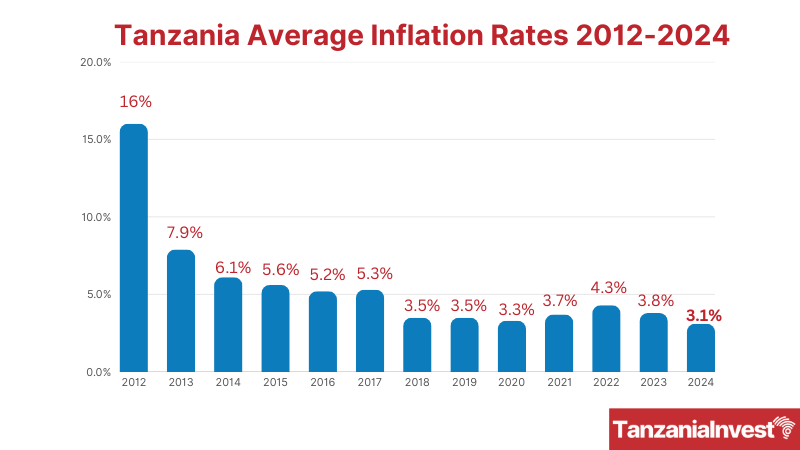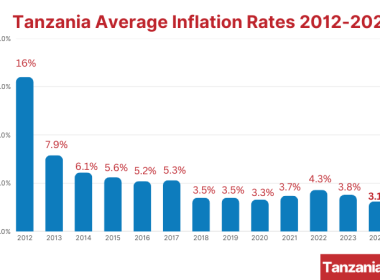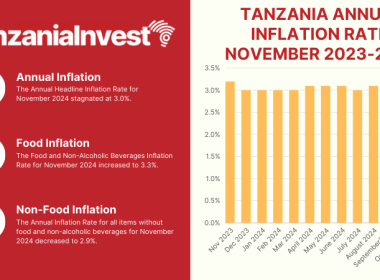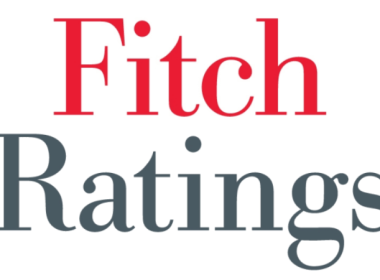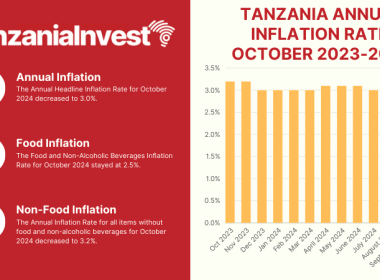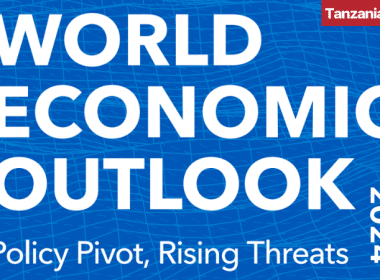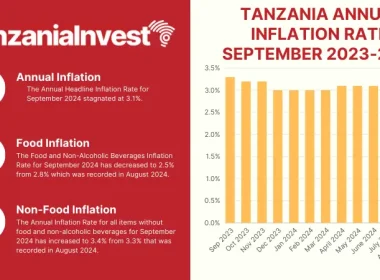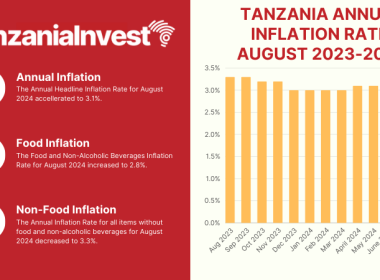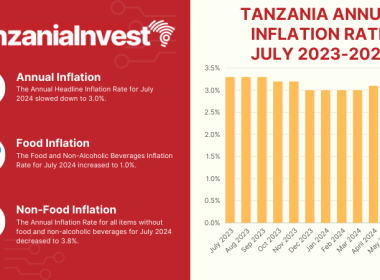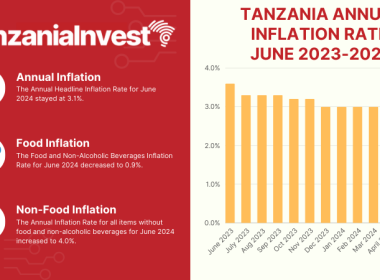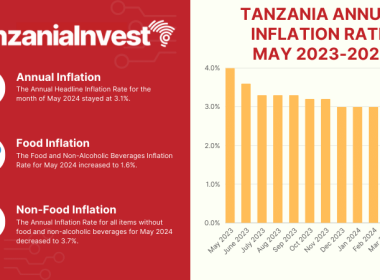Inflation
Tanzania’s inflation rate has seen a notable decline over the past few years. After reaching a peak annual inflation rate of 16% in 2012, the rate has steadily decreased, hitting a record low of 3.1% in 2024.
Tanzania Inflation Rate in 2024
In 2024, Tanzania’s average annual inflation was 3.1%. This is significantly lower than the 3.8% recorded in 2023, 4.4% in 2022, and 3.7% in 2021.
The decrease in the average annual headline inflation rate in 2024 is mainly contributed by the decrease in the inflation rate for food items between 2023 and 2024 since the group has the largest share (28.2%) in the CPI basket compared to other groups.
The annual average inflation rate for food items has decreased to 2.1% in 2024 from 6.8% recorded in 2023.
Strategic interventions carried out by the Government in the agriculture sector have resulted in increased food production, improved food supply, and enhanced availability and affordability of food.
However, core inflation has increased to 3.4% in 2024 from 2.3% observed in 2023.
The overall index went up to 116.87 in December 2024 from 113.34 recorded in December 2023.
The objective of Bank of Tanzania (BOT) monetary policies is an inflation rate of 5% in the medium term, which is consistent with the East African Community (EAC) and Southern African Development Community (SADC) convergence criteria of a ceiling of 8% and a range of 3-7%, respectively.
This inflation target is considered appropriate to support sustainable growth of the economy.
BOT traditionally controlled inflation by managing the growth of the money supply. Extended broad money supply (M3), which is estimated to have the closest relationship with the rate of inflation, is used as an intermediate target variable. M3 comprises currency in circulation outside the banking system and deposits of residents with banks, including foreign currency deposits.
However, in January 2024 BOT announced it had transitioned to an interest rate-based monetary policy, effective the same month.
The policy shift moves away from the previous focus on controlling the money supply, aligning Tanzania’s economic management with regional practices and international standards. The move aims for enhanced economic stability and growth.
Latest update: 19th January 2025
Sources: Bank of Tanzania (BOT, Tanzania National Bureau of Statistics (NBS), World Bank (WB).





